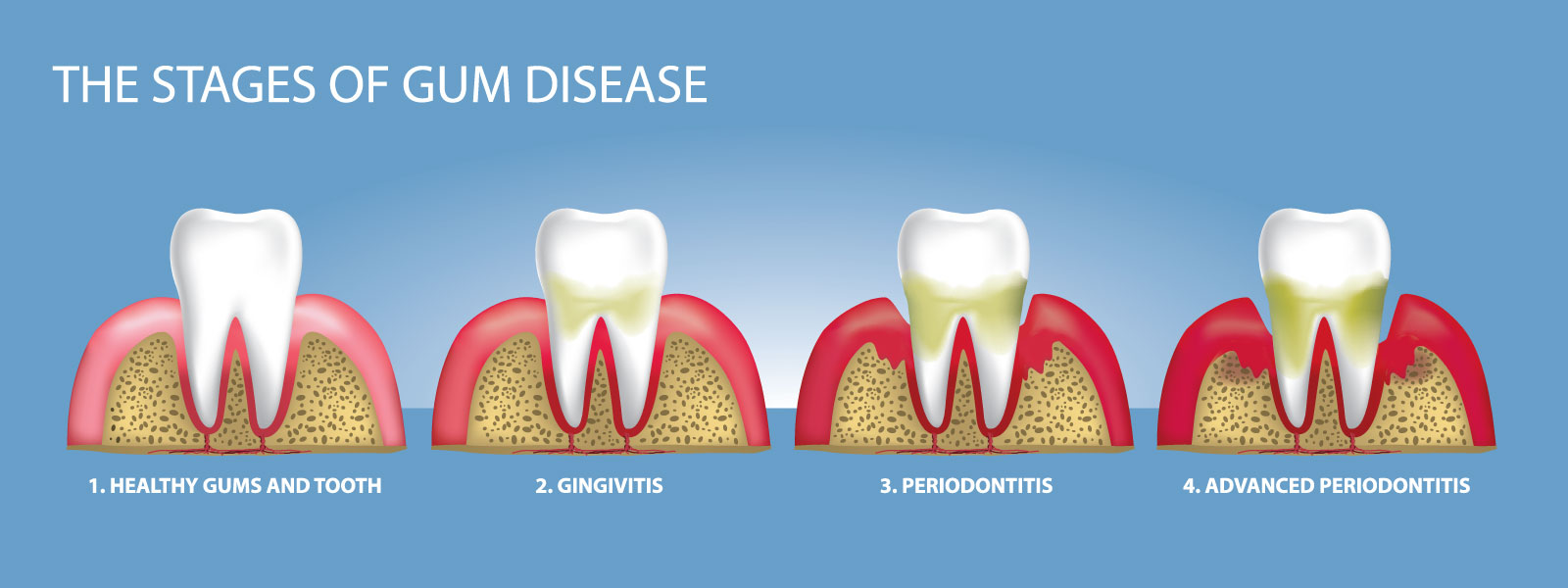Our gums are often overlooked but play an integral part in our overall health. They're not only the foundations for our teeth but also a window into the health of our bodies. In this article, we're spotlighting gum disease, its impacts, prevention, and treatment methods.
The silent threat of gum disease
Gum disease is a deceptively quiet problem. In its initial stages, many people may not notice any discomfort or visible signs. Gum disease is "sneaky." This is why if you're not visiting the dentist regularly, you may not even realize it's happening. Gum disease, or periodontitis, begins as inflammation of the gums. If left untreated, it can cause destruction of the gum tissue and the bone supporting the teeth, and ultimately lead to tooth loss.
Your dentist can detect signs of gum disease by measuring your gum pocket depth. A reading over three or four millimeters is a potential problem. Bleeding gums are another telltale sign, but unfortunately, many of us dismiss this symptom when we should be heading to the dentist right away.

Gum health and overall health: the surprising connection
Your mouth is an integral part of your body. It's not an isolated region, and any inflammation or infection in the mouth can travel throughout your body via your bloodstream.
Numerous studies have found associations between gum disease and other systemic diseases such as cardiovascular disease, diabetes, and respiratory diseases. Common issues that increase your overall health risk include high blood pressure, smoking, excess weight, and diabetes; if you add gum disease to these other conditions, you could be significantly increasing your likelihood of a heart attack or stroke. By keeping your mouth healthy, you're taking a significant step towards maintaining your overall health.
How we treat gum disease at Salvatore Dental: the dentist's role
The first step in treating gum disease involves an in-depth evaluation. Your dentist will take precise measurements of your gum pockets and check for signs of inflammation and bleeding. If pockets are deeper than normal, your dentist might put you on a program such as scaling and root planing.
This non-surgical procedure cleans the root surfaces to remove plaque and tartar from deep periodontal pockets and to smooth the tooth root to remove bacterial toxins. Following this initial treatment, your dentist may recommend regular check-ups every three months to prevent recurrence.
Beyond the clinic, your dentist can guide you on using tools like a water flosser. Not only does this helpful tool remove particles, but it also removes bacteria in those areas.
Home remedies for gingivitis (gum disease)
Preventing gum disease primarily lies within your power. Good oral hygiene habits, including proper brushing and flossing, are your first line of defense against gum disease. Remember to brush your gums, not just your teeth. If your gums bleed when you brush, you may be tempted to avoid brushing them. While of course you should brush gently in any inflamed areas, bleeding is actually a sign that you need to clean your gums more, not less; and of course you should get in to see your dentist as soon as possible.
In addition, maintaining a balanced diet and regular dental visits for professional cleaning and examinations can also help prevent gum disease.
Gum disease is a widespread yet often overlooked health issue that can significantly affect our overall health. But armed with the right information and habits, we can effectively prevent and manage it. The secret to healthy gums lies in understanding their importance, keeping them clean, and seeking regular professional care. It's a journey towards oral and overall health, and every step counts.
We provide a thorough inspection for gum disease as part of our routine dental wellness exams. Schedule your wellness exam today and let us take care of you!



